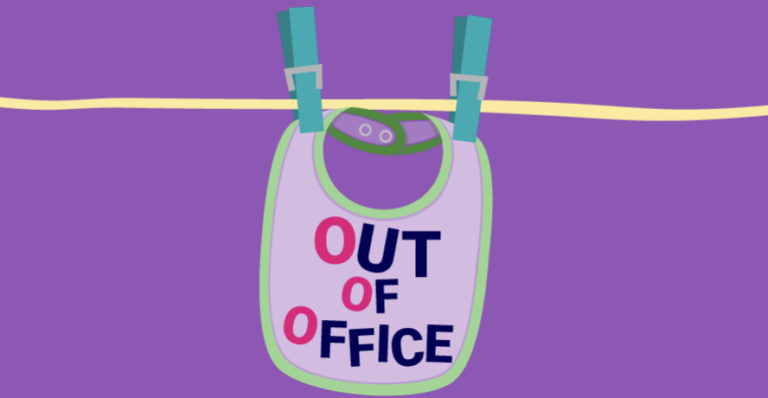Parting Shots
GAURAV SHARMA has clearly had enough of parliamentary life. Equally clearly, he is not suited to it. Nevertheless, he has made an extremely useful contribution to the bullying debate.
His op-ed piece for the NZ Herald confirms what all political journalists should know: that Parliament is Ground Zero for institutionalised bullying. It would, however, be naïve to expect members of the Press Gallery to augment Sharma’s observations with their own. The Press Gallery is no less enmeshed in the system of punishments and rewards that pervades every corner of the parliamentary complex than the MPs themselves.
What emerges from the Gallery and the Labour Party itself over the next few days promises to be a master-class in the art of dismissing, diminishing and disparaging an individual who has had the temerity to breach the iron law of Omerta which governs the practice of party politics.
Like Fight Club, the first rule of party politics is not to talk about party politics.
It is to be hoped that Sharma is a resilient person, because the amount of emotional violence heading his way will likely be personally devastating.
That hope may be a vain one, however, since Sharma appears to have entered Parliament without the necessary acculturation in the vicious political environment of the New Zealand Labour Party.
Purely from the perspective of an outsider, Sharma’s selection appears to have been a pro-forma affair. Very few Labour strategists would have anticipated success in the Hamilton seats – which, prior to 2020, had been in National’s column for four elections in a row. Sharma would likely have seen himself as nothing more than a booster of Labour’s Party Vote. A not unreasonable view, given his Number 63 position on Labour’s Party List. Just as it did for most Hamiltonians, Sharma’s victory in Hamilton West must have come as a mighty shock.
Nothing like as big a shock, however, as the political culture of the Labour Caucus. Those Labour politicians who spent years fighting their way into Parliament would have an enormous advantage over a political naïf like Sharma. They would know what to expect. Whose way to keep out of. Whose prospects to block. And, whose hunting party to join when the Leader’s minions identified a member of caucus to be taken down a peg or two. All of them would have mastered the courtier’s art of sucking-up and punching-down. Putting it bluntly, a disturbingly high proportion of Sharma’s colleagues would be – as he has now charged – bullies.
Those who weren’t bullies would’ve been doormats. Selected as candidates for their placidity and biddability, they are the sort of people who can be relied upon to back their party right or wrong, and to support whoever occupies the top leadership roles with an equally undiscerning fervour. The traditional term for these types is “hack”. Sharma likely found these Labour lambs even more disturbing than Labour’s wolves.
Judging from his op-ed piece, Sharma may even have been labouring under the misapprehension that he was in Parliament to represent the electors of Hamilton West. He may even have thought that they were the people to whom he was ultimately answerable. Wrong! Wrong! Wrong! That is merely his constitutional role.
His real role is to shut up and do as the Whips command. Make a speech on a subject about which he knows nothing. Sit on a Select Committee and vote exactly as the Chair indicates – no matter how wrong or stupid. Most importantly, say nothing, write nothing, and do nothing that attracts unwanted attention.
The poor man would soon have discovered that this “sit still and shut up” rule applied with equal force in caucus. If he was ever incautious enough to stand up in front of his colleagues and express views contrary to those of the Front Bench, then he would have very soon have appreciated why those tasked with the responsibility of keeping the Back Bench under control are called “Whips”.
Think about it for a moment. Labour has a caucus of 65 MPs. Most of them, like Sharma himself, highly qualified professionals. How, then, is it possible that all but two of these intelligent and (presumably) principled men and women (the exceptions being Louisa Wall and, now, Sharma) have never even once spoken out of turn or (God forbid!) expressed a viewpoint on any major – or even minor – issue that was not in 100 percent conformity with the official party line? What does it take to inspire and maintain that sort of collective discipline? The answer, tragically, is fear. Fear of being written-off as a troublemaker; and fear of the emotional violence inevitably inflicted upon those who, at least initially, refused to be bullied, by those who long ago abandoned all resistance.
The good little bunnies of the Labour caucus will, of course, object that party politics cannot function without party discipline. They will remind their critics that politics has always been “the art of the possible”, and that nothing will ever get done if a government is mired in endless internal debates.
These objections will be backed-up energetically by the Press Gallery as basic common-sense. How could they not, when the members of the Press Gallery are just as much victims of the “Stockholm Syndrome” as the MPs they cover. Gallery journalists are expected by their editors to hunt as a pack – not on their own. They are also prone to being bullied by the darker variety of ministerial minion, who will threaten them with a denial of access to the key newsmakers if they step too far out of line.
How many of the current crop of Labour MPs and Gallery journalists are aware of the fact that the First Labour Government’s caucus was a hotbed of dissent and disputation, and not above over-ruling the demands of Cabinet Ministers? Strangely, given the dictates of “common sense”, that First Labour Government still managed to keep its promises to the electors – and transform a nation. Which is not to say that the party was lacking in bullies, merely that, back then, there was no shortage of Labour MPs willing to stand up to them.
Sharma, sadly, is not doing that. He has clearly had enough of Parliament and is more than ready to return to his life as a medical professional. What he has been willing to do, however, is draw aside the curtain, if only for a moment, and let the electors of New Zealand see how their representatives are treated. Those same electors owe him a vote of thanks: not only for the glimpse of the bullying culture that pervades their Parliament, but also for the demonstration that is bound to follow of how that same, sick, system responds to its critics.
Undoubtedly, there will be Labour supporters reading these words with mounting disbelief – and fury. It is fitting, then, to close with a vivid illustration of Labour’s long-standing culture of bullying.
At the Labour Conference of 2002, a tiny handful of mostly younger delegates attempted to protest the Labour-led Government’s decision to send troops to Afghanistan. As Helen Clark began speaking, one young man rose to his feet and attempted to make his opposition known. As he did so, a number of party heavyweights (fortuitously seated next to him) also rose to their feet. The dissenter was grabbed – none too gently – and physically dragged from the auditorium. Two young women, positioned closer to the stage, who attempted to unfurl an anti-war banner, received very similar treatment.
When Willie Jackson boasts that Labour has a different definition of democracy – he isn’t kidding.







It was Labour who introduced the 2019 Francis Report on bullying.
Sharma is reported to be getting advice from Bishop.
Why was he standing next to one of Nationals worst bully’s?
Remember Woodhouse, the toilet seat, and the victim?
If this article was written about parliamentary culture generally it may have had credibility.
After all the Francis report made at least 80 recommendations(see appendix A) How many were used?
If it was used how and why has it broken down?
Who stands to gain?
Chris Trotter is a lefty who’s turned. A shame as he now seems to be adding to the vitriol that could well see us with one of the worst reactionary governments the country has ever seen.
Enjoyed your insights on this Chris – although deeply depressing in their nature a very well constructed and written analysis. Thank you.
Very well written Chris. Evidence you keep the desire for something better burning, despite incessant rain.
I think you’re on to it @ ChrisT.
Hopefully, one day he might return once the Labour Party has shed itself of the neoliberal agenda, or even when – if it doesn’t, something new has been created. Albeit with a different ‘brand’ and a recognition of what it was, and why it was created.
In the meantime, he should do himself a favour: tell them to shove it, and keep them on their toes through whatever media outlet is available.
We really should be able to expect better from our eRected representatives and all the professional bullshit artists, spin merchants and careerists that capture and enable them. I don’t expect them to be martyrs or perfect specimens, but I do expect them to be at least mildy ethical.
(And that “CEO” of PServices seems to be a bit of a self-serving prick – it’s by no means the first time he seems to have got himself into a bit of a scrape).
The last time I went into the Parliamentary ‘SPACE” was probably 30 years ago. Then several times more recently. Oh how things had changed – for the worse.
The incompetence and fucking around by various people just fucking blew me away – and that was just trying to get into somewhere that had been pre-arranged. I probably should have just said “don’t you know who I am?” and I’d have been in like Flynn.
cast the illusions aside and see the daimonic elements of the psyche at play. yes it is a brutal world we live in and many have only their own narcissistic interests at heart.
Good on him!
I am sure he is correct (anyone remember the ABC’s…bullying much I think).
God knows we need surgeons. Far better for Dr Sharma to be doing an important days work, than wasting his time with Dr Do-Little
Rules of parliament state: “Interferences or obstructions of members or officers may be overt or covert. Such interference or obstruction may consist of an assault, molestation, or a threat or other form of intimidation. Such action will be treated as a serious contempt if it occurs in the discharge of the member’s or officer’s duties.
Why aren’t all Whips of any party in jail for contempt of parliament?
Interesting insights – cheers Chris. Makes the case for retaining or increasing the strength of local government. It’s not perfect but it’s streaks ahead of what you’re describing here
Agree! More representative governance at both levels
I don’t doubt bullying exists in parliament at all but you sure this guy does not have an axe to grind? He’s been working over issues with parliamentary services over issues for a year apparently
Wheel Yes, a year is too long for an in-house workplace issue to be resolved.
There are government departments with unofficial policies of not responding to complaints, hoping that they go away. If Parliamentary Services are engaging in these sort of unhelpful practices with elected politicians, then they must be called to account pronto – like yesterday.
This can be seen as yet another obstruction of the democratic process if it is impacting upon how somebody does their job.
Parliament is a restricted-membership club for sociopaths.
We need to accept that, and back those who will bully for us. Before the last good American politician, Huey Long, was murdered by a foreign assassin, he faced a bizarre Senate hearing in which his political opponents accused him of being a dangerous paranoic who would likely commit murder if not immediately sent to a mental hospital. While the wife of the Governor who preceded him ranted about his mental instability, Huey stood up and asked- knowing well the answer- if she had ever had ever been remanded into psychiatric care after having a mental breakdown. She didn’t take it well, and the session descended into chaos, leaving Long free to advocate for the working man.
So the place is made up of bullies and doormats? Sounds like life in general doesn’t it.
The Labour Party sounds like a cesspit I’m sure things operate differently in the National Party in Parliament. I mean in things like conscience votes they let members vote according to their conscience and the whole pecking order thing is totally different.
An ironic part of what goes on is the part the media plays in our politics. It reminds me of the relationship between the media and our sports people. A young alpine sports competitor has success, is interviewed all over and journalists comment about the openness of the the athlete, their refreshing candour and their ‘freshness.’ They compare that with the stoic, controlled, bare minimum to say rugby players, who mostly are under a strict rein in their availability to the press.
They wonder why those players have an impenetrable defensive a wall around them greater than what they produce on the field. One reason is experience. You can’t afford to rock the boat and have to be wary that, “Yeah, I’m okay to play, my injury’s better,” isn’t the next headline, “Player slams coach for non-selection.” One team earlier this year featured in a big write-up under headline words about “carnage” at the hotel the team was staying at with the impression created that a racket it had something to do with the team. Yes, “carnage.” Players, teams, organisations are suspicious there is a feral journalist ready to go. The best way to handle that is to not say anything, be totally disciplined, keep in line.
The same in caucus. Some innocent comment, something taken out of context can be massive. All, the time of building to a position, all the resources used in an effort to be seen to be worthy, down the tubes in a moment. Witness the National Party conference last weekend and what happened this week. Witness what has happened with Labour this week with National disparaged and Sharma
getting it out of the news.
The other aspect of course is how the environment Sharma describes matches other working environments and society as a whole. Does the broad brush of ‘office politics’ cover that? ‘Institutional bullying’?
Back to ‘bullies and doormats.’ Is a caucus situation one in which the top dogs enter the room at one end leaving their coats outside the door? The ‘others’ enter at the opposite end, putting their coats on the hooks outside and like in some places where weapons are handed in on entry, they quietly place their aspirations in the containers provided, their brains in the buckets and their pride down the toilet?
Peter, your first two sentences sums it up perfectly for me – from a lifelong experience of quite a few workplaces. ‘Nuf said!
Except, this situation has nothing to with Sharma’s political stances and having to yield to the will of the party. It stems from his management of staff in his office, and his apparent displeasure in being identified as part of the problem. He would likely have had no problem with “the bullies”, if only they had taken his side.
Good call Sponsored Content. I had to laugh when Erica Stanford said this guy is so brave and a “good guy”. I am sure she wouldn’t be so complimentary about a Labour MP normally.
Uffindell joined the wrong party.
How does that comment even make sense.